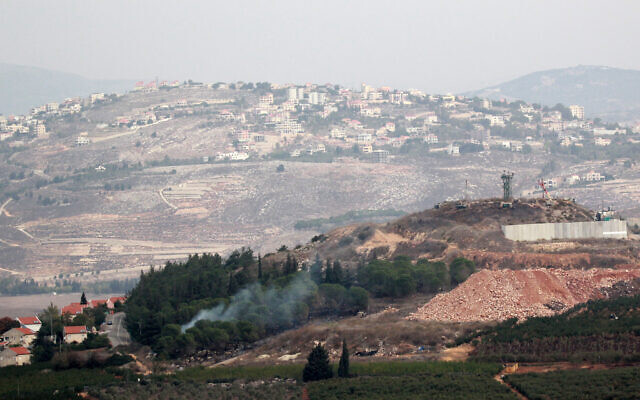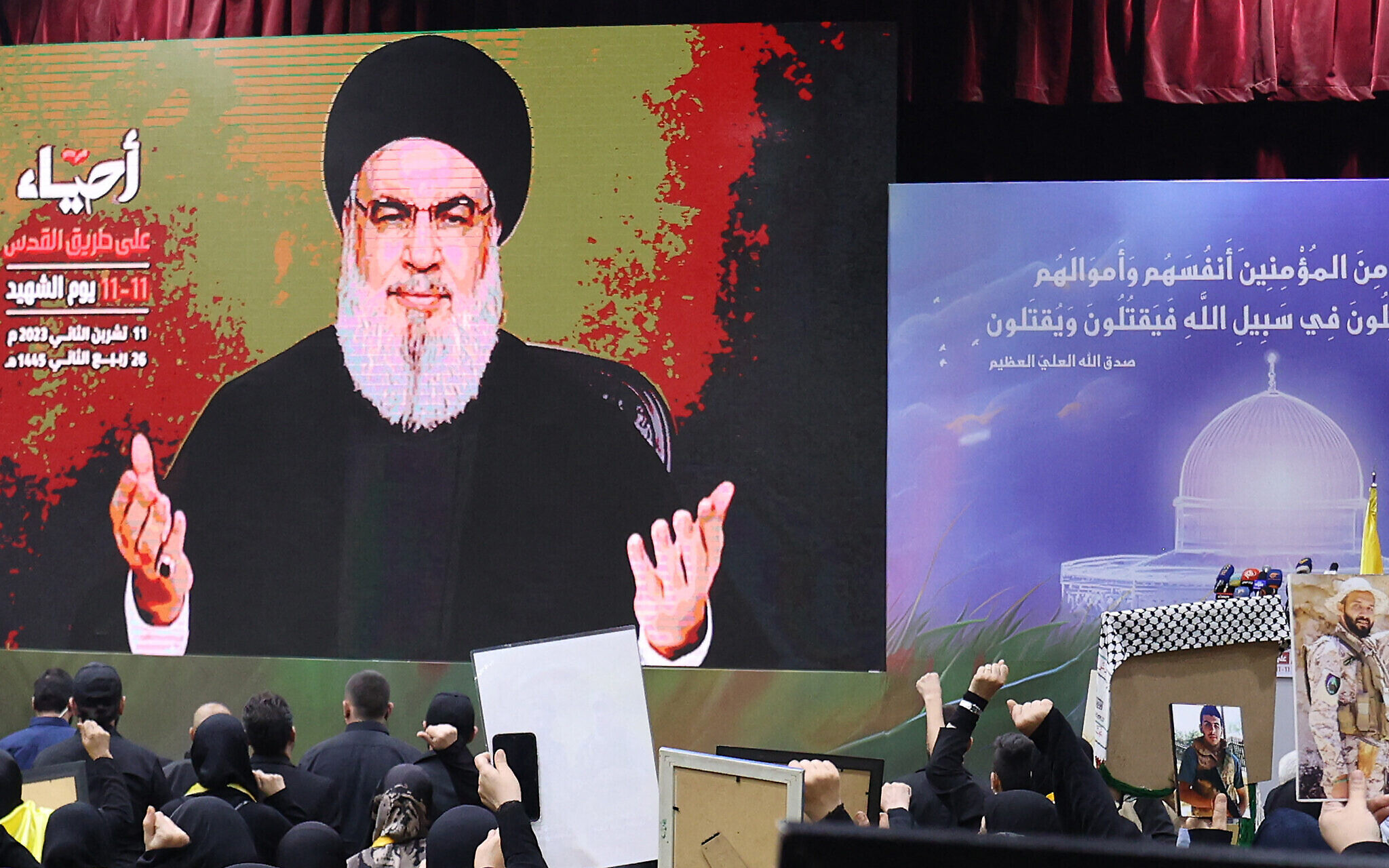



Hezbollah-led attacks on Israel’s northern border continued Monday, as did Israeli retaliations, as the Israel Electric Corporation announced that one of its workers had been killed in an anti-tank missile strike the previous day.
The anti-tank guided missile fire continued on Monday, with a projectile fired from Lebanon at an area near the northern community of Netu’a.
Two Israelis were hurt in the attack. There was no immediate word on their condition.
The IEC said 56-year-old Shalom Aboudi was slain in Hezbollah’s Sunday attack. At least 13 other civilians were wounded when the Hezbollah missile struck a number of vehicles near the northern community of Dovev, close to the border.
Some of the victims were IEC employees who had arrived to repair power lines damaged by previous fire from Lebanon.
The company said Aboudi had worked for the corporation for 34 years, and was survived by his wife and two children.
Hezbollah claimed responsibility for the attack, falsely claiming in a statement that it had hit soldiers installing surveillance equipment.
The IDF said fighter jets carried out strikes Monday against a series of Hezbollah sites in southern Lebanon, in response to the latest rocket, missile and mortar attacks on northern Israel.
The sites hit in the strikes included Hezbollah infrastructure, compounds with weapons depots, and a command center, the IDF said.
In addition to the missile fire, some 18 mortars were fired from Lebanon on Monday, setting off sirens in the northern communities of Arab al-Aramshe and Gornot HaGalil.
The IDF said all the projectiles landed in open areas, causing no injuries or damage, and that troops responded with artillery shelling toward the sources of the mortar fire.
Additionally, the IDF said that it struck a terror cell overnight in southern Lebanon that was preparing to carry out an attack near the Biranit army base.
In addition to the missile and mortar fire toward the north, there were a number of false alarms that sent residents running for shelter.
Rocket sirens sounded in Safed and nearby towns in the Upper Galilee, as well as in Acre and suburbs in the Western Galilee, and alarms for a suspected drone infiltration sounded in the Upper Galilee. All were later deemed by the IDF to be false alarms.
Since Hamas’s assault on Israel on October 7 and during the subsequent war inside Gaza, where Israel seeks to topple the ruling terror group, the Iran-backed Hezbollah has conducted and overseen daily assaults on Israel’s northern border from Lebanon, but has stopped short of launching a full-scale campaign.
Israel, too, has sought to respond strongly to attacks while avoiding actions that would escalate the conflict as it seeks to keep its focus on Gaza.
The persistent skirmishes along the border have resulted in three civilian deaths on the Israeli side, as well as the deaths of six IDF soldiers.
On the Lebanese side, more than 80 have been killed. The toll includes at least 71 Hezbollah members, eight Palestinian terrorists, a number of civilians, and one Reuters journalist.
In addition to the deadly missile attack in which Aboudi was killed, seven soldiers were wounded by a mortar on Sunday near the northern community of Menara.
Later that day, rocket sirens sounded in a number of towns in northern Israel, including Acre on the coast and Kiryat Shmona in the Upper Galilee. There were no reports of injuries or damage.
The IDF said some 15 rockets were fired from Lebanon at northern Israel, with four projectiles being intercepted by the Iron Dome air defense system. The rest landed in open areas, causing no injuries or damage.
The Hamas terror group claimed that its Lebanon branch launched a barrage of rockets at Haifa, Nahariya, and nearby towns on the Lebanon border.
On Saturday, Hezbollah leader Hassan Nasrallah called for more global demonstrations against Israel over the war in Gaza in order to put pressure on Israel and its allies.
Nasrallah, in a lengthy speech, also called for dragging out the war “for as long as possible” to enable greater “resistance,” and sneered that only the US and UK were now standing with Israel.
Defense Minister Yoav Gallant, speaking soon afterward, said that Hezbollah risked making the mistake of dragging Lebanon into war, and warned that residents of Beirut would pay the price.



